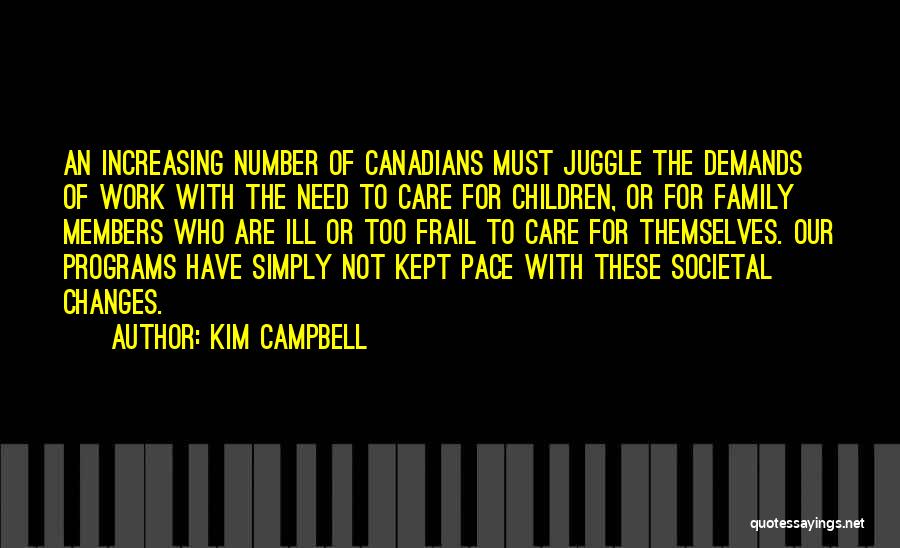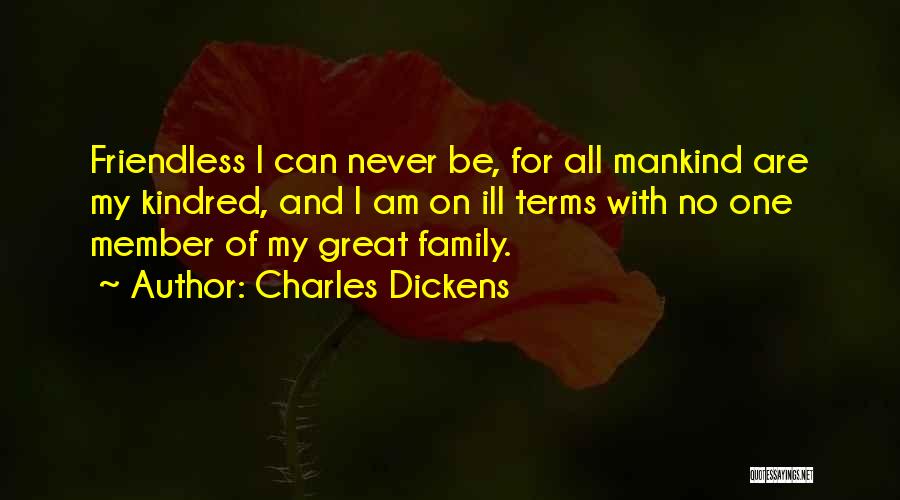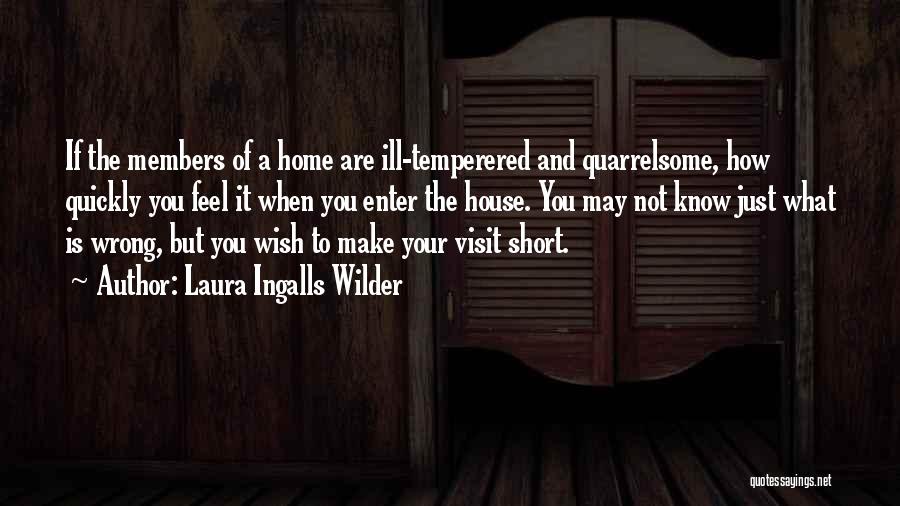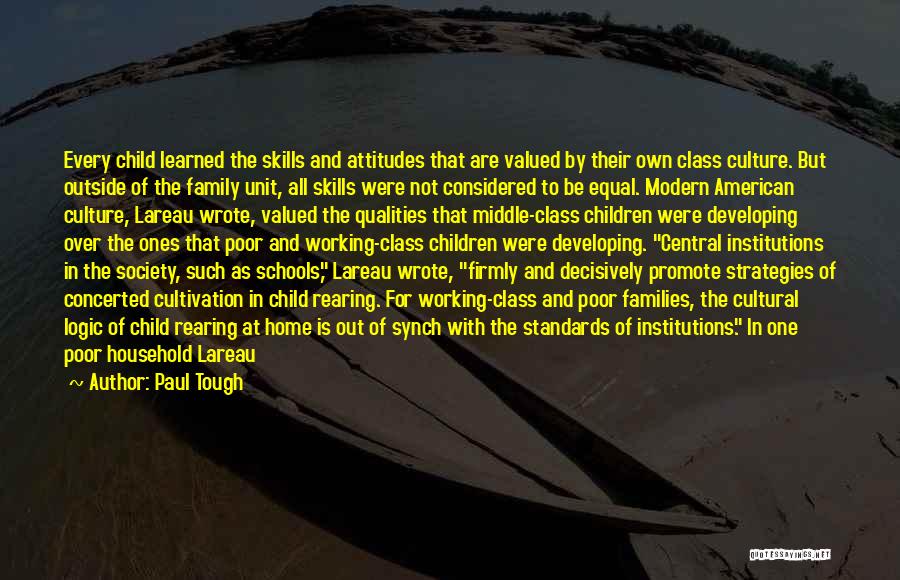Quotes & Sayings About Ill Family Members
Enjoy reading and share 5 famous quotes about Ill Family Members with everyone.
Top Ill Family Members Quotes

An increasing number of Canadians must juggle the demands of work with the need to care for children, or for family members who are ill or too frail to care for themselves. Our programs have simply not kept pace with these societal changes. — Kim Campbell

Love by faith. Love our enemies by faith. Love our neighbors by faith. Love fellow believers by faith. Love our family members by faith. Love our spouses by faith. Love our in-laws by faith. Love a rebellious teenager by faith. Love our betrayer by faith. Love an ill and bitter parent by faith. Love by faith, not just by feeling. — Beth Moore

Friendless I can never be, for all mankind are my kindred, and I am on ill terms with no one member of my great family. — Charles Dickens

If the members of a home are ill-temperered and quarrelsome, how quickly you feel it when you enter the house. You may not know just what is wrong, but you wish to make your visit short. — Laura Ingalls Wilder

Every child learned the skills and attitudes that are valued by their own class culture. But outside of the family unit, all skills were not considered to be equal. Modern American culture, Lareau wrote, valued the qualities that middle-class children were developing over the ones that poor and working-class children were developing. "Central institutions in the society, such as schools," Lareau wrote, "firmly and decisively promote strategies of concerted cultivation in child rearing. For working-class and poor families, the cultural logic of child rearing at home is out of synch with the standards of institutions." In one poor household Lareau studied, for example, family members didn't look each other in the eye when they spoke - an appropriate response in a culture where eye contact can be interpreted as a threat, but ill-suited to a job interview where a firm handshake and a steady gaze are considered assets, and a failure to make eye contact can make a candidate seem shifty. — Paul Tough





